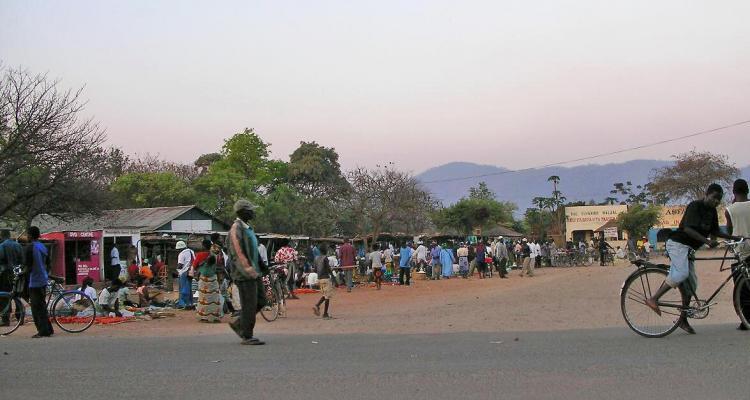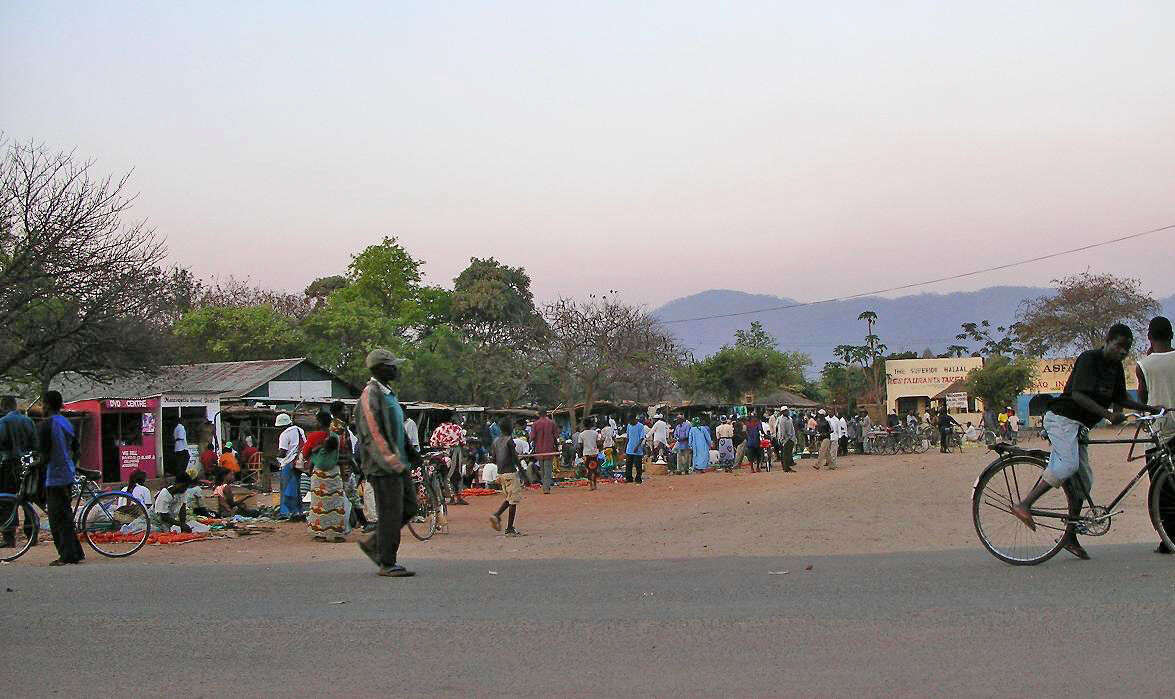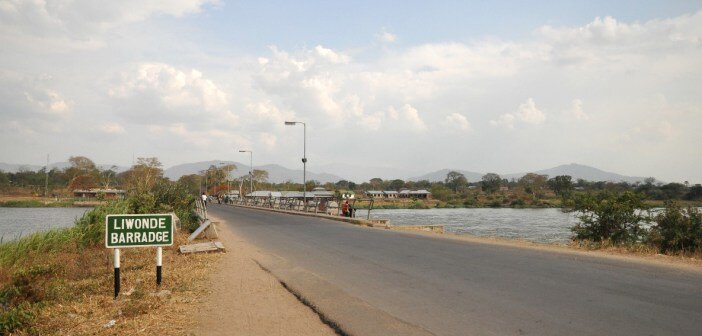
What happens in Vegas remains in Vegas, however, Liwonde and Zomba Malawi’s parts are alternatively known as Half London.
Here, the islanders warn wagging tongues to mind the shoreline.
“What happens in the water remains in water,” is a popular saying in the fishing community.
The adage has a slightly modified version for visitors, especially fish mongers and other mobile workers. Za pa chilumba zimathera pa Chilumba. (What happens on the island is not meant for the mainland), they say.

However, there is a silent surge of risky sexual activity which confirms what happens in Liwonde does not end on the lakeshore district.
A rising tide of sex work is ripping the divide and taboos, exposing the secluded fishing community and travellers to a higher risk of sexually transmitted infections (STIs).
Untold encounters with trends of sex work and HIV infections were bywords of my recent trip to the district, which ended without shocks. No terrible waves. No delays. No breakdown. The four-hour voyage Chiponde malwi, Mozambican made my 2018 my road transport one to forget.
Except the shipload was dominated by girls and women who offered vivid clues to the broadening underworld of sex sales and likely risks.
“Hi,” one of them greeted me with stunning familiarity.
I didn’t know whether to ask who she was or tell her the face looked familiar.
I didn’t want to offend her.
So, I return the greeting accordingly, asking her: “What’s up in Liwonde”
“Fish,” she said. “I sell fish. So, I am going to order some more.”
“Great idea. Keep it up,” I saluted her supposed strides to liberate herself from massive unemployment and lack of skills which pushes thousands of young Malawians into several ills, including risky sexual transactions.
My conscious which has never disappointed kept its promise! She is not fish seller, but her body. The Familiar One is one of scores of young women trekking to the district to ply sex work.
In Liwonde, there was a road between her lodge and mine. She checked in a K1 000 place overpopulated by girls and women looking for sex clients. I ended at a K2 000-K5 000 affair where most white-collar workers put up–and the receptionist duly warned me to take extra care in case desperate sex workers come knocking.
True to the warning, the Familiar One would be on my doorstep around 2.30pm.
A knock. Another knock. Yet another. Silence. Then vanishing thuds of high heels crashing the fragile floor.
When I opened the door, she had just exited the corridor.
Our next encounter was around 7pm. I was coming from supper and she was with a man in a dark corner near the entrance to my place, murmurs of prices were audible.
I disappeared into a sizeable crowd to and from a bar within the lodge premises.
The hottest nightclub on Liwonde Island was the setting of our 10.45pm reunion.
This time, the Familiar One confirmed she didn’t know me either and that the fish talk was just a cover up. Perceived illegality of sex work and cultural dynamics of this “God-fearing country” leaves her kind under intense stigma with many Malawians calling them sluts, whores, sinners, killers and destroyers of marriages.

“We are here to make money,” the Familiar One from Mzuzu said.
“But there’s money on the mainland?” I countered.
She retorted: “Life is hard on the mainland. Money is scarce there and men are saving the little they have for their families and basic needs.”
You do not have to be an economist to note the economy is just about collapsing, with the one-time floating currency increasingly flying out of reach for poor Malawians.
In the woman’s reasoning, the island’s fishers toiling on the lake all night and the fishmongers waiting to buy the catch are generous when it comes to sex.
In this scramble for sex, the fisher folk call it “kuzipepesa” or consoling themselves for the night-long fishing expeditions while the buyers term it kuupeza or relaxing since they don’t travel with their spouses or permanent sexual partners.
The Familiar One might have spoken highly about the fishy business, but she had a word for me: “Gimme K1 500 [$2.7] for a room or are we going to sleep in your room?”
“In my room?”
“We can use mine.”
“How?”
“It is just K3 000 a night and K1 500 short-time.”
I was neither a fisher nor an answer to sex workers’ housing questions.
In my world of journalism, United Nations Aids Fund (UNAids) defines a sex worker as a male, female or transgender adult–aged over 18–who receives money or goods for sexual services either regularly or occasionally.
The locals on the island identified the Familiar One as a regular and she is not the only one.
DJ Gunde said: “Recently, the pub has been receiving an increasing number of sex workers. Every ship brings scores of them and the island will be hit hard by STIs and HIV infections unless we protect ourselves.”
In the past five years, studies have established that Liwonde district is sitting on a time bomb despite having the fewest sex workers among its own locals.
Using capture-recapture method, asking like-minded to name their colleagues, Family Planning Association of Malawi (Fpam) found only nine out of 19 295 sex workers in the country on Liwonde.
The islanders are convinced the figures have been long surpassed.
In 2010, the island was one of the epicentres of a One Love study conducted by Pakachere Institute for Health and Development Communication.
The study, commissioned by Southern Africa Development Community (Sadc), did not just confirm the tendency of having more than sexual partners is the major driver of HIV infections in southern Africa.
It singled out the island population as a high-risk sex web exposing nearly all residents and visitors to HIV infections.
“There were a lot of sexual networks involving and affecting almost every sexually active age–the adults sleeping with adolescents, the single with the married, the islanders with travellers from the rest of the country,” says Pakachere project officer Basimenye Nhlema.
Sexually transmitted infection resulting from the sprawling concurrent multiple partnerships that put the island’s 14 500 people at risk do not remain on the island, Nhlema says.
“The population of Liwonde and Chizumulu may be small, but there is need to intensify provision of awareness, counselling, testing, treatment and other vital services to safeguard them because they act as a bridge of infections to the entire population on the mainland,” she urges.
The crossover is unmistakable in the parity of infection rates on both sides of the lake where 10 in every 100 Malawians live with the virus that causes Aids.
Women are the worse hit, accounting for slightly over 300 of 500 on anteretroviral therapy (ART) at St Peter’s Hospital on the island.
Main challenges to HIV and Aids intervention on the islands includes sporadic scarcity of condoms, anti-retroviral drugs and testkits; low male participation in HIV counselling and testing as well as scanty availability and use of female condoms.
In an interview, district Aids coordinator, Geoffrey Mwase, said: “The hospital used to experience stock-outs of male condoms and other supplies due to logistical issues, but that has become history. HTC, socially marketed condoms, ART and outreaches are readily available now.”
Logistical issues refer to glitches in ship travels, the islanders lifeline to the mainland where they get nearly all basic goods and services.
“The temporary stock-outs often hit when ships are unobtainable,” said Mwase.
The behavioural change gaps, especially men’s resistance to know their status and low utilisation of female condoms, could be a result of lack of negligible presence of government and non-governmental agents on the two islands. It worsens the proness of women who often have no say on sex matters due to taboos and economic disparities.
As they keep shunning the ship to the island in preference for their urban area, Chief Nkumpha pointed to boatloads of infections–in reference to boats carrying arrivals to the shore from ships which dock in the middle of water due to lack of jetties at Liwonde and Chizumulu.
“The island is in danger,” says Chief Mkumpha. “The sex workers are not only spreading diseases to sexually active men, but also risky behaviour to school girls.”
The traditional leader called for increased and consistent behavioural change awareness and services, including youth-friendly services.
Evangelical Association of Malawi (EAM), with funding from Norwergian Church Aid and Act Alliance, is working with community members and religious groups to scale up sexual and reproductive health education.
“Sexual activity is so high on the islands. Two years ago, we had school girls as young 12-14 being impregnated, signalling the need for messages and services to shield them from unprotected sex which makes them vulnerable to HIV,” says EAM district coordinator Derek Masese.
Aged 16, one of seven human faces of teen pregnancies in Chamba Village this year, spoke of being rejected by a fisher who used to spoil her with gifts before the baby bulge.
Hilda Mhango, speaker of the district’s youth parliament, calls for more access to condoms to save boys and girls from infections and unwanted pregnancies as the allure of money from fishing and tourism endanger lives and future.
You might not see the endangered daughters of the island among the flurry of sex workers at the lodges, but they just go underground.
The visiting girls and women say they have taken over, but the hidden locals, who sometimes attend to clients in their homes, come clear on the ship to Nkhata Bay.
The lusty trips often come by appointment with male islanders in need of company when they go to do business on the mainland. Sometimes the girls just want to make “a little more money” on the other side as the ship back to Liwonde comes two to three days later.
The singles’ trips often get off to a steamy start as they strike quick deals with either crew members or passengers with cabins.
This way, what happens on the island spills to the ends of the country.
“God save our people,” Mkumpha prays as the ‘familiar ones’ multiply, bursting the perilous sex web.















The headline, places, pictures are all mixed up Liwonde and Likoma.
Are you trying to merge two stories in one. Please re write your story.
I am not a journalist but this is a mess.
Well,
Gabriel am not too privy to what happens at Likhoma island. However I also encountered a similar situation at Liwonde sometimes on the 1st of January (maybe everyone was in a celebratory mood). There were hordes and hordes of sex workers soliciting for sex at all the famous night clubs. I recall that short time was going for MK1000/session. The sex workers would virtually approach u and offer their services (malonda). I hooked up with a number of them who were so nice to me (am sure they saw me as a potential customer).
Am not too privy to what happens at Likhoma Island but I also encountered a similar situation at Liwonde sometime on the 1st of January. There were hordes and hordes of young women soliciting for sex at one popular night club (could be Club 21). This incident was not isolated to only one night club but to virtually all night clubs in Liwonde.
Sir,
You are referring to Likoma and not Liwonde